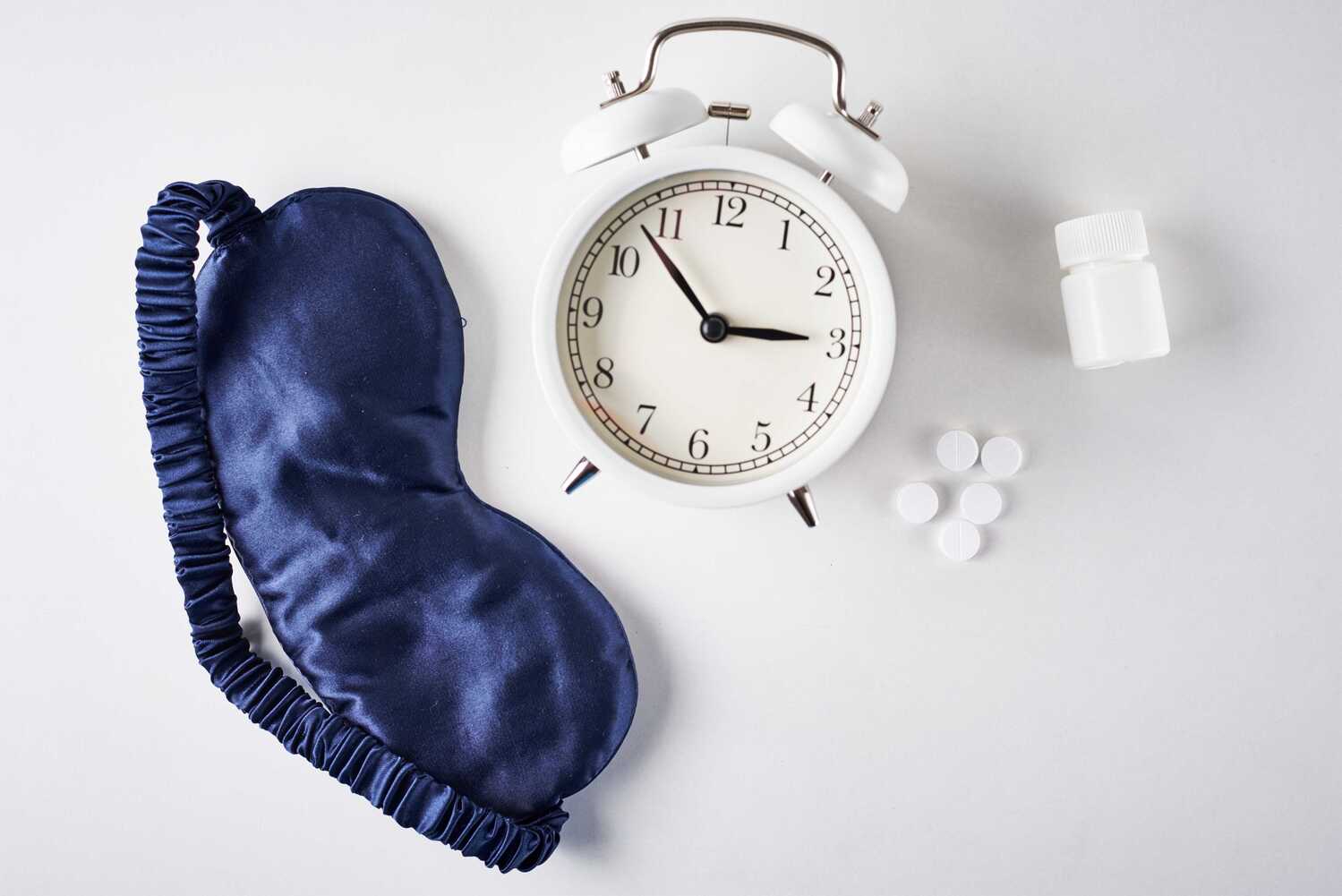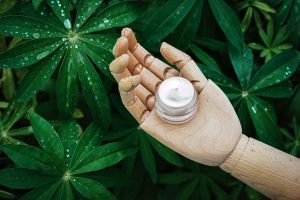Cannabis And Sleep Disorders
- Nicholas DiBella
- Published: December 13, 2023
- Updated: January 1, 2025
- Fact-checked by Dr. Desiree Granados

Researchers estimate that more than 50 million Americans suffer from chronic sleep disorders. Poor sleep can cause or worsen many physical and psychological conditions.
Cannabis may be able to help if you suffer from insomnia or other sleep disorders. In this article, we’ll talk about the science behind marijuana’s effects on sleep and whether you can get a medical card for sleep disorders.
Does Cannabis Help You Sleep?
Cannabis is a viable option for alleviating the symptoms of insomnia and other sleep conditions. The sedative effects of cannabis can increase the duration of deep sleep, or the restorative phase of sleep. Increasing the time spent in this sleep stage raises your likelihood of waking up feeling refreshed and recharged.
Marijuana can also help patients whose sleep disturbance stem from other symptoms like chronic pain or anxiety. By alleviating such symptoms that prevent individuals from falling asleep, cannabis can enhance sleep quality and lengthen its duration.

The Science Behind Marijuana & Sleep
Cannabis contains about 100 chemicals called cannabinoids. These substances bind to receptors in the endocannabinoid system (ECS), a vast network that controls many bodily processes, including sleep.
Cannabis may help improve sleep by promoting relaxation and reducing factors that interfere with restful nights. Compounds like THC (tetrahydrocannabinol) can have sedative effects, helping users fall asleep faster and stay asleep longer. Meanwhile, CBD (cannabidiol) may ease stress and anxiety, making it easier to unwind before bedtime.
One recent study of older adults with chronic pain reported cannabis had overall positive effects and helped patients remain asleep throughout the night.
Another study assessed the effects of cannabis on PTSD-related nightmares, which can cause insomnia and poor sleep quality. Researchers noted medical marijuana effectively suppressed such nightmares.
Can You Get a Medical Marijuana Card for Insomnia?
New Mexico is the only state that lists “insomnia” as a qualifying condition for a medical marijuana card, but you might be eligible for a medical card in other states as well.
For example, in states like New York, Virginia, and Washington D.C., doctors can prescribe medical marijuana to anyone they believe will benefit from the treatment.
Other related conditions like anxiety, PTSD, chronic pain, and sleep apnea are also qualifying conditions in certain states. Learn more by checking out our interactive map of U.S. medical marijuana laws.
Can Marijuana Cause Insomnia?
Cannabis can cause insomnia in some individuals. THC helps patients sleep by suppressing the rapid eye movement characteristic of restorative sleep, but when weed is used over prolonged periods, this initially positive effect can lead to worse sleep quality and even insomnia.
A study published in 2020, found that frequent cannabis use is associated with several sleep issues including decreased sleep quality and duration, as well as increases in sleep disturbances and insomnia.
Another study from 2008 looked at heavy marijuana users who discontinued their use, and noted increased sleep disturbance. Researchers noted that further research is needed to assess the extent of the adverse effects of cannabis on sleep.
It is important to take into consideration the somewhat paradoxical effect of long term cannabis use on sleep. While smaller doses and sporadic use can aid in sleep, overuse of cannabis can result in lower quantity and quality of sleep.
Risks of Using Cannabis for Sleep
The primary risk of any sleep aid, including marijuana, is that it will lose its effectiveness over time, making higher doses required to achieve the same effects. Experts recommend using sleep aids alongside natural sleep remedies. Establishing a consistent bedtime, limiting caffeine and alcohol intake, exercising, and managing stress can improve your sleep quality.
Long-term use of cannabis can disrupt your circadian rhythm, or your natural sleep-wake cycle. It can also suppress the production of certain hormones, making it critical to consult your doctor before using it for insomnia or any other condition.
Tips for Using Cannabis for Sleep
The fundamental principle for safely using medical marijuana is to begin with a low dose and build it up over time as you acclimate to the drug. Here are a few more tips to consider:
- Consider using a tincture of cannabis, which delivers the product in concentrated liquid form. These are often the best type of cannabis product for sleep since their effects last longer than marijuana flower’s.
- Consuming a dose of marijuana about 30 minutes before bedtime will allow it to enter your system and engage with your endocannabinoid system.
- Formulations with a blend of THC and CBD may offer the best effects for insomnia.
What Are the Best Cannabis Strains for Sleep?
Indica strains are preferable for helping you fall and stay asleep because they are associated with soothing and relaxing effects. Sativa strains are uplifting and stimulating, which may exacerbate rather than alleviate insomnia.
Hybrid strains containing a blend of THC and CBD, such as Blue Dream and White Widow, are generally recommended for sleep disorders since each compound binds to the ECS to induce sleep. Your local dispensary’s budtenders can recommend products suited to your needs.
Some strains we recommend for sleep issues include:
- Granddaddy Purple (GDP)
Known for its strong sedative effects, this indica strain is ideal for promoting relaxation and combating insomnia. Its sweet, grape-like flavor adds to its appeal. - Northern Lights
A classic indica strain, Northern Lights is renowned for its calming properties, helping users drift off into a deep and restful sleep. - Bubba Kush
This indica strain is highly effective for reducing stress and physical tension, making it easier to relax and fall asleep quickly. - Purple Kush
With potent sedative effects, Purple Kush is perfect for nighttime use. It’s especially helpful for relieving pain and promoting uninterrupted sleep.
We recommend consulting with a medical marijuana doctor or dispensary expert to find the strain and dosage best suited to your needs.
Why Choose the Sanctuary?
The Sanctuary Wellness Institute works with experienced medical marijuana doctors who can answer your questions and assess your suitability for cannabis. Our physicians believe in the value of medical cannabis and understand the nuances of using marijuana for sleep disorders. If you’re interested in using medical cannabis to improve your sleep quality and/or address another condition, contact the Sanctuary today.
States Where We Offer Medical Marijuana Card Services
How we reviewed this article:
- Terence Ng; Maureen C. Keshock (2023). Tetrahydrocannabinol (THC)
https://www.ncbi.nlm.nih.gov/books/NBK563174/ - Hannah Meissner; Marco Cascella (2024). Cannabidiol (CBD)
https://www.ncbi.nlm.nih.gov/books/NBK556048/ - Sharon R Sznitman, Simon Vulfsons, David Meiri and Galit Weinstein (2020). Medical cannabis and insomnia in older adults with chronic pain: a cross-sectional study
https://spcare.bmj.com/content/10/4/415 - Mortimer Mamelak (2020). Nightmares and the Cannabinoids
https://pmc.ncbi.nlm.nih.gov/articles/PMC7536831/ - Evan A Winiger, Leah N Hitchcock, Angela D Bryan, L Cinnamon Bidwell (2020). Cannabis Use and Sleep: Expectations, Outcomes, and the Role of Age.
https://pmc.ncbi.nlm.nih.gov/articles/PMC7572650/ - Karen I Bolla, Suzanne R Lesage, Charlene E Gamaldo, David N Neubauer, Frank R Funderburk, Jean Lud Cadet, Paula M David, Antonio Verdejo-Garcia, Amy R Benbrook (2008). Sleep Disturbance in Heavy Marijuana Users
https://pmc.ncbi.nlm.nih.gov/articles/PMC2442418/ - Gary Wenk Ph.D. (2023). The Benefits of Using Cannabis for Sleep Disorders
https://www.psychologytoday.com/us/blog/your-brain-on-food/202305/the-benefits-of-using-cannabis-for-sleep-disorders - Leafly (2024). Northern Lights
https://www.leafly.com/strains/northern-lights - Leafly (2024). Bubba Kush
https://www.leafly.com/strains/bubba-kush
Current Version
Updated Date
January 1, 2025
Written By
Nick DiBella
First Published
December 13, 2023
Written By
Jake Peter
Fact-checked By
Dr. Desiree Granados
Editorial Process
Our Editorial Process
Other Posts About Medical Marijuana Treatment

Nicholas DiBella received his psychology degree from West Chester University of Pennsylvania and has been writing content for the Sanctuary Wellness Institute since 2023. He is passionate about all things health & wellness.







